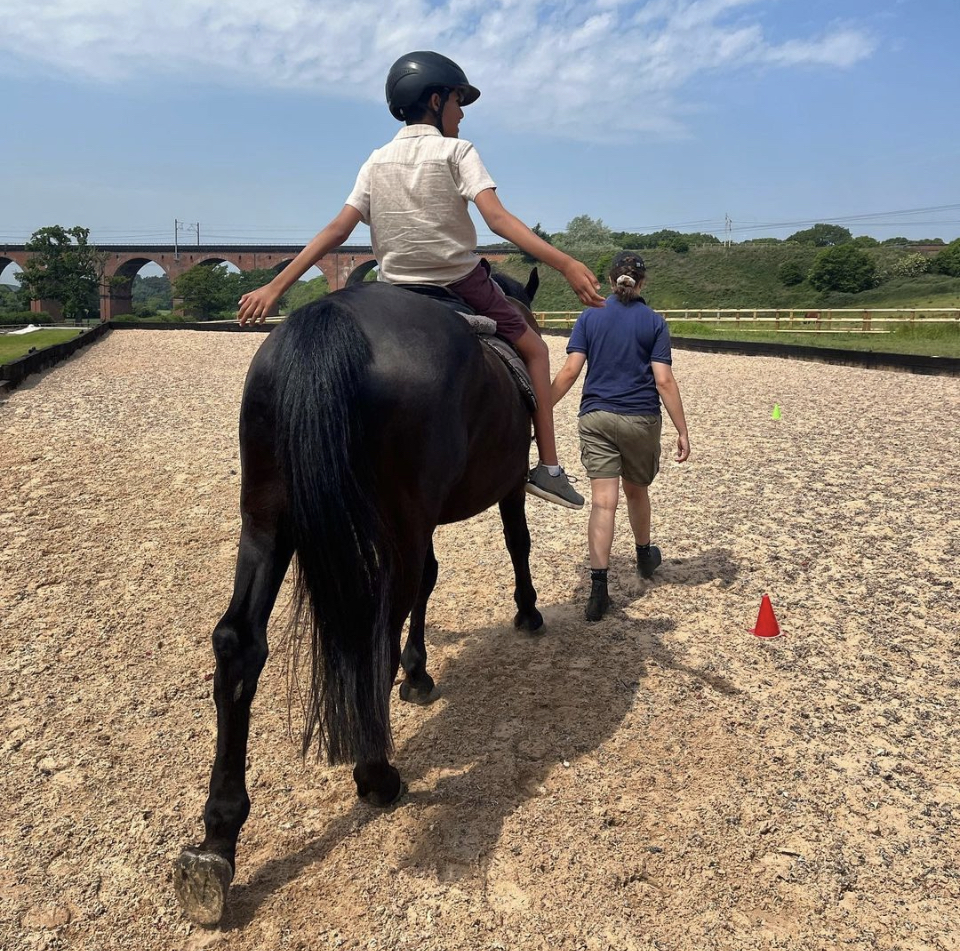
For World Autism Awareness Day (Tuesday 2 April), Alex shares a blog about her experience as a Neurotypical researcher in Autism research and how she attempts to navigate the complexities of this space.
I’ve been invited to write this piece in celebration of “World Autism Awareness Week” for the Doctoral Research Blog. It’s my absolute pleasure and privilege to be able to work in the field of Autism research and at a non-profit “Making Momentum CIC”, which offers Equine Assisted Supports and Alternative Education Provision to young people with additional support needs.
Navigating moving in this space is tricky. I am very conscious that the bulk of the benefit of completing research rests with myself. I am the one receiving funding, the one who will (hopefully) receive a Doctorate and the associated opportunities. I am also aware that I do not share the Autistic identity and as such there is a risk of amplifying my own voice and prioritising my own interpretations over those of the Autistic people I am working alongside. Should I be generating knowledge at all in an area where I have no personal lived experience? This throws up notions and concepts of what it means to be an ally, interrogating core beliefs and maintaining ethical integrity. It is not possible to say with certainty that everyone involved in my research will have a positive experience, nor that any knowledge generated will not be used in a way that is harmful once it is published. At what point does research become exploitative, and what are acceptable levels of risk?

Author Elizabeth Fein (2020) flips the narrative on person first language, describing herself as “living with Autism”, discussing her enmeshment with Autistic people in familial, personal and professional contexts. Like Fein, I have personal and professional connections with Autistic people that mean the boundaries between us are permeable and unclear. Identity is experienced at the point we intersect with each other, so although I am Neurotypical myself, I do have lived experience of those connections. Dr Henny Kupferstein (2020), who herself is an Autistic Autism Researcher, proposes that Neurotypical researchers engage with Able Grounded Phenomenology to interrogate preconceived ideas, throw light on unconscious bias and decolonise practice.
I have gone through many iterative cycles of self-reflection and interrogation, debating at length how to position myself and my work and remain true to my aim to be an ally to the Autistic Co-Researchers and Community I’m working with. I’ve discussed these concepts with peers, lecturers and supervisors and received much helpful input. There are no clear and clean easy answers here. The place I currently find myself is one of a tolerable level of discomfort. I am aware of potential pitfalls; I have engaged with the literature and identified and employed methods that are informed by Autistic people at every stage of the research process. There are still uncertainties and messiness, but my hope is that by taking these steps I can complete my thesis in a way that is ethical. How successful I will be remains to be seen.
How Is This Relevant to Other Manchester Met Students?
Neuro-divergent affirming care is becoming the gold standard; accommodating people’s individual support needs, using identity first language and creating sensorily friendly and accessible environments. Likewise, there is a shift towards Participatory Action Research based methods like Co-Research and Co-Design in more recent literature. The Neurodiversity movement has mirrored the development of the disability rights and advocacy movement. The concepts that give rise to the “Nothing About Us Without Us” slogan embody the principles of meaningful participation and are utilised by campaigns pushing for policy and service changes that reflect the wants and needs of those affected by them.
If you are conducting research with people there are very likely going to be neuro-diverse individuals in your participant cohort. The Autistic identity is intersectional. Autism occurs in every race and sex. When compared to their neurotypical peers, Autistic people are more likely to identify as Queer and gender diverse (Sarris, 2020. George and Stokes, 2018. Dewinter, 2017.), more likely to have a disability or chronic illness (Rydzewska et al, 2018.), more likely to be the victim of a crime (Foster and Young, 2021.) and have an increased incidence of substance abuse (Butwicka et al, 2017. Dickie et al, 2018.). Autistic people are service creators, providers and users. They are academics and advocates. They are present in all research populations. As such, I would argue that we have an ethical duty of care to ensure they are supported in participating. Research materials and processes should be accessible and appropriate to ensure inclusive and meaningful contributions that improve the validity and richness of data sets and diversity of voice. These are principles integral to the ethos of Manchester Met and contribute in large part to creating a great atmosphere for study in a wonderful and vibrant research community.


